By Ming Yin Kwong
Growing up, I was told that coffee was an acquired taste exclusively for adults. And when my parents told my 12-year-old self that I could not drink coffee, I just ended up drinking it behind their backs. I forced myself to go beyond the initial dislike of the bitterness because I was trying to convince myself that I was “cool enough for coffee”. However, there was something that I could not overcome – I became super anxious and jittery after drinking coffee. I started to worry about things that I had absolutely zero control over, and my heart rate went up. I could almost feel my heart pumping out of my chest. After several attempts, I just gave up and accepted the fact that I would never be “cool enough for coffee”. However, there is another beverage that I have always been able to enjoy growing up, and that is tea. Although tea also contains caffeine, I had not experienced the same anxiousness after drinking tea. In fact, it is the exact opposite – tea helped calm my mind and help me reach a state of focus, similar to the flow that I get from working out or playing video games. After starting my PhD research on tea and meeting various tea researchers all over the world, I learned the term “tea drunk” and realized that I am not alone in achieving the sense of calmness through tea.

Image by Quang Nguyen Vinh from Pexels
Tea has been extensively studied in the literature, especially the catechins in tea and their anti-inflammatory, antioxidant, and antitumorigenic properties.1 However, the most abundant amino acid in tea, L-theanine, has its fair share of time in the spotlight as well. It has been shown to have neuroprotective effects, protecting neuron cell death after ischemia and slowing the progress of elderly dementia.2 L-theanine also has calming and stress reducing effects, contributing to the state of “tea drunk.” For example, a study by Kimura et al. demonstrated this effect by having volunteers do math problems.3 Now, as we all know, doing math is a very stressful task. This put an acute stress on the volunteers and increased their heartrates. However, volunteers who took theanine before or during the task had a smaller increase in heartrate when compared to the placebo group, suggesting that theanine had a stress reducing effect on the volunteers.
Another study by Unno et al. investigated the stress reducing ability of matcha, a powdered Japanese green tea abundant in theanine.4 They found that consuming matcha helped to decrease the stress response in mice under confrontational housing of students at pharmacy schools. However, not all matcha had the same effect. Since matcha also contains a high amounts of caffeine and catechins, which counteract the calming effect of theanine, the ratio of these two types of compounds is important.
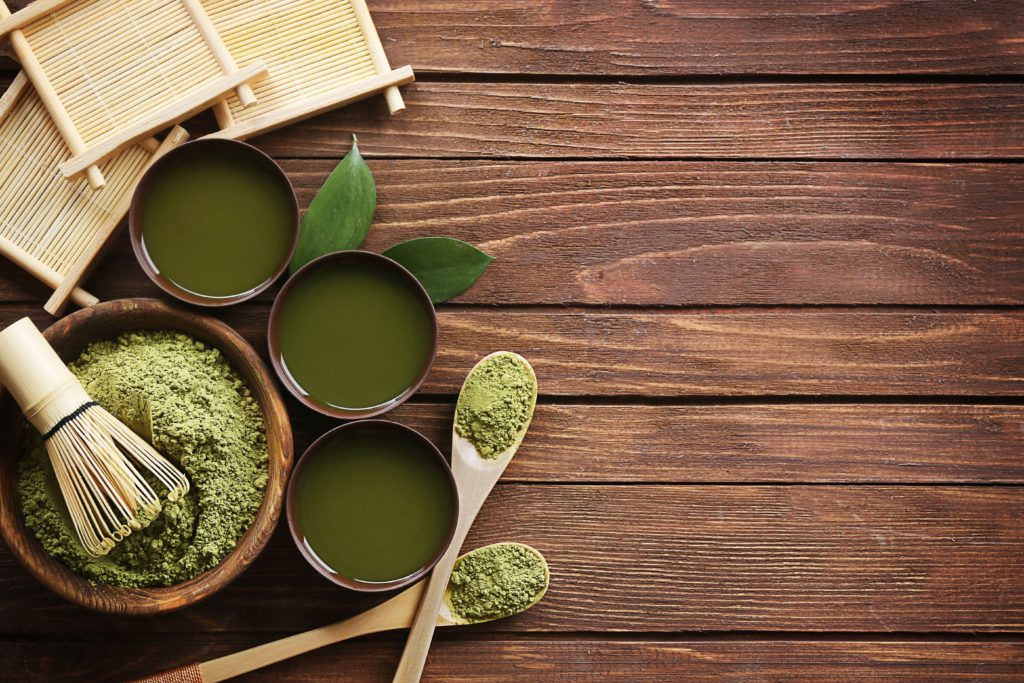
For those who want all of the technical details, you can read the paper yourself. For now, let’s talk about what does it mean for tea drinkers. Essentially, we need a balance of the relaxing theanine and arginine (second most abundant amino acid in matcha) to the stimulating caffeine and catechins. This can be achieved by buying higher grade green tea. The tea leaves tend to be younger, harvested earlier in the season, and shaded before harvest, which increase their amino acid content. Not only can you enjoy the sweetness and umami-ness from the amino acids, but you can also feel the relaxing effect of theanine. If your budget is tight, do not worry, and try cold brewing your tea instead. Free amino acids are small molecules, so they can easily diffuse out of the tea leaves and to the solution, even if colder temperature is used. On the other hand, catechins tend to be bigger and harder to diffuse out of your tea leaves when cold water is used. For a refreshing and calming tea beverage, fill your water bottle with cold water and add a couple of tea bags. Place it in the fridge overnight and enjoy the next day. I personally recommend fruity flavored green tea for this purpose (you can thank me later).
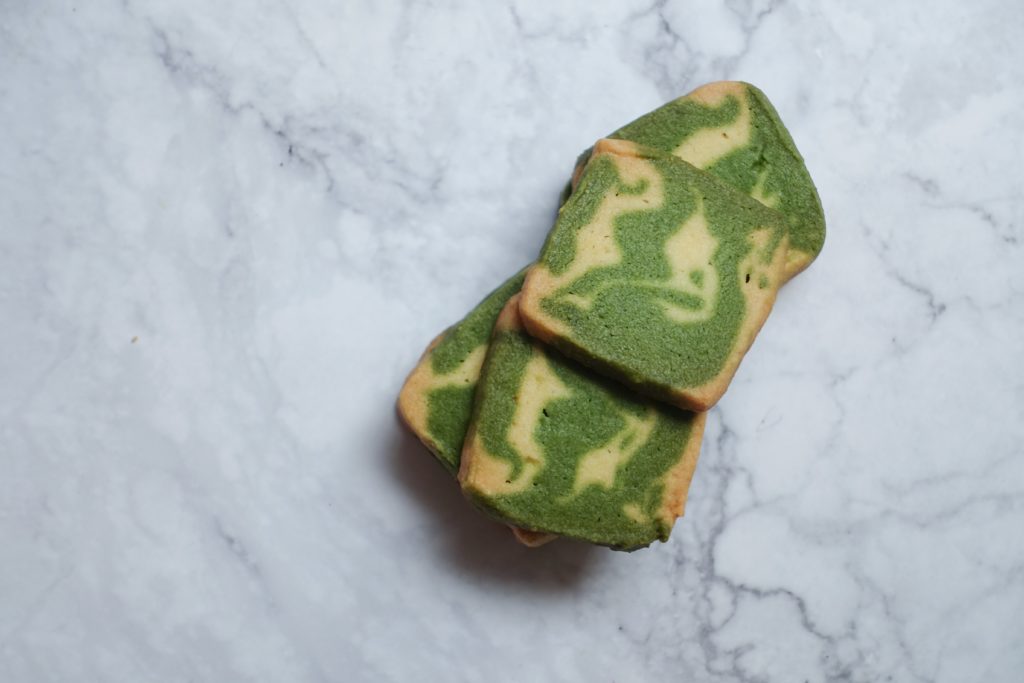
Image by Buenosia Carol from Pexels
I know that not everyone is a fan of the taste of tea, and some of us even find matcha’s flavor to be grass-like and not very enjoyable. Well, if you can enjoy tea infused confectionery goods, I have good news for you. Unno et al. extended their study to matcha cookies, and showed that the stress reducing effect remained after baking.5 So regardless of your preferred form of theanine intake, there are ways for you to reap the calming benefits of tea. We live in an incredibly stressful time right now, so let’s try to squeeze in a little teatime for ourselves and enjoy a moment of calm.
References
(1) Liao, S.; Kao, Y.-H.; Hiipakka, R. A. Green Tea: Biochemical and Biological Basis for Health Benefits. In Vitamins & Hormones; Academic Press, 2001; Vol. 62, pp 1–94. https://doi.org/10.1016/S0083-6729(01)62001-6.
(2) Kakuda, T. Neuroprotective Effects of Theanine and Its Preventive Effects on Cognitive Dysfunction. Pharmacol. Res. 2011, 64 (2), 162–168. https://doi.org/10.1016/j.phrs.2011.03.010.
(3) Kimura, K.; Ozeki, M.; Juneja, L. R.; Ohira, H. L-Theanine Reduces Psychological and Physiological Stress Responses. Biol. Psychol. 2007, 74 (1), 39–45. https://doi.org/10.1016/j.biopsycho.2006.06.006.
(4) Unno, K.; Furushima, D.; Hamamoto, S.; Iguchi, K.; Yamada, H.; Morita, A.; Horie, H.; Nakamura, Y. Stress-Reducing Function of Matcha Green Tea in Animal Experiments and Clinical Trials. Nutrients 2018, 10 (10). https://doi.org/10.3390/nu10101468.
(5) Unno, K.; Furushima, D.; Hamamoto, S.; Iguchi, K.; Yamada, H.; Morita, A.; Pervin, M.; Nakamura, Y. Stress-Reducing Effect of Cookies Containing Matcha Green Tea: Essential Ratio among Theanine, Arginine, Caffeine and Epigallocatechin Gallate. Heliyon 2019, 5 (5), e01653. https://doi.org/10.1016/j.heliyon.2019.e01653.

Ming Yin Kwong | Linkedin
SMF Blog Writer
Ming graduated with her B.S. in Chemistry at University of California, Davis. Internship opportunities with Mi Rancho and UC Davis Olive Center made her realized her passion for Food Science. She decided to stay at UC Davis for her Ph.D. in Food Science, with a research focus on tea chemistry. When she is not crushing tea leaves or developing HPLC methods in the laboratory, Ming enjoys working out to balance the extra calories that she consumes, traveling with friends and family, watching cooking shows, and playing video games.
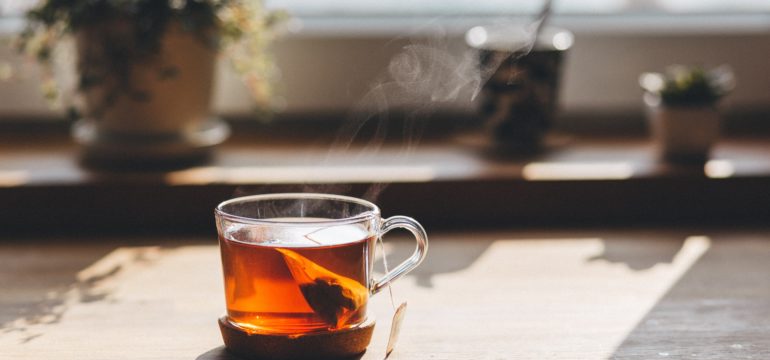


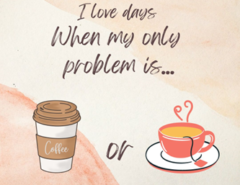

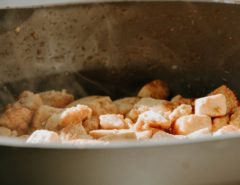
Leave a Reply